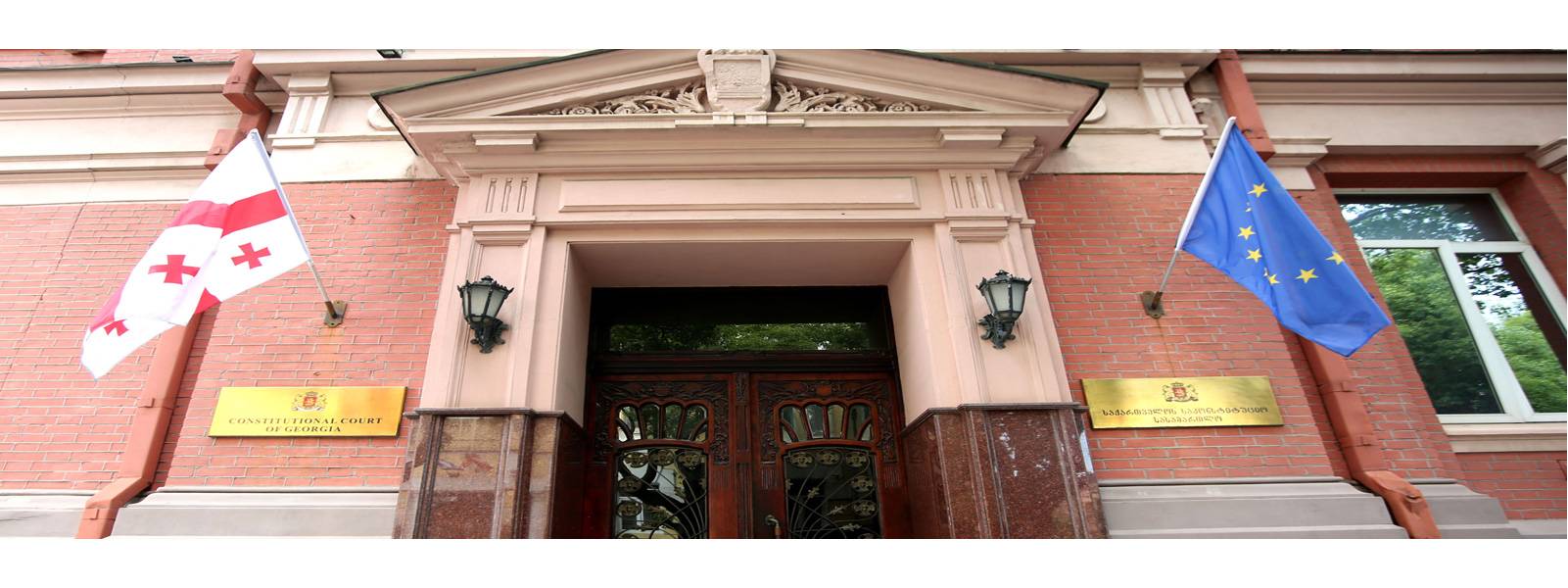The Constitutional Court partially upheld the Constitutional Claim №926
The Constitutional Court partially upheld the Constitutional Claim №926
On November 4, 2022, the First Board of the Constitutional Court of Georgian partially upheld the Constitutional Claim №926 (“Giorgi Logua vs. the Parliament of Georgia”).
The disputed norm established grounds for criminal liability for illegal making, dissemination or advertisement of pornographic works, printed publications, images or similar items, as well as trade in or storage of these items for marketing or dissemination purposes.
The complainant argued that the disputed norm did not provide the definition and legislative criteria describing the content of 'pornography', which contradicts the qualitative standards of the norms establishing the legal responsibility. Besides this, the unforeseeable norm, establishing the responsibility for dissemination of the pornographic material leads to a so-called ‘chilling effect’ upon the freedom of expression. The complainant considered that the limitation for dissemination of the pornographic material among the adults contradicts the freedom of expression.
The Parliament of Georgia noted that it is not possible to fully define the concept of ‘pornography’ in order to exclude subjective risks. According to the respondent's position, a negative definition laid down in the note of the disputed norm of the pornography as well as the relevant conclusion by the art critic for initiating a criminal prosecution, ensure sufficient foreseeability of the disputed norm. The respondent named the normal physical and spiritual development of juveniles, guaranteeing their right to sexual self-determination and their protection from the psychological impact resulting from the exposure to pornographic works, as well as maintenance of public morals and ethics as the legitimate aim of the disputed norm. The respondent considered that the regulation of the disputed norm served as appropriate, necessary and narrowly proportionate means for achieving the legitimate aims. As noted by the
complainant, defending the interests of a so-called 'captured audience' also could have been considered as a legitimate aim of the disputed norm.
In order to define the concept of pornography, the Constitutional Court evaluated the terms 'illegal' and 'pornographic' in Article 255 of the Criminal Code of Georgia. The Constitutional Court ruled that the existing legislation provided for the possibility of legitimate distribution of pornographic works only via cable television, and distribution of such material using any other means, including the Internet, was considered illegal distribution. Accordingly, the Constitutional Court held that the disputed norm was not vague and did not contradict the first sentence of the Paragraph 9 of Article 31 of the Constitution of Georgia.
The Constitutional Court noted that the relevant provisions of the Criminal Code of Georgia and the related legislation did not envisage the normative definition of the concept of pornography. In addition, there is no public consensus on the content of the concept of pornography, neither at the global nor at the local level. The concept of pornography is perceived differently in different groups of society, cultures or regions. Considering a work as pornographic depends on many different circumstances - a person's consciousness, ideology, moral and ethical views, as well as his/her ideas about sexual ethics. It is because of the heterogeneous attitudes of society towards sexual acts and nudity that there were risks that a rather wide spectrum of sexual acts would be included in the content of pornography, which would be contrary to the qualitative standards of the law establishing responsibility.
Simultaneously, due to vagueness of the content of the concept of pornography, the Constitutional Court of Georgia deemed it impossible to assess the constitutionality of the disputed norm with respect to the right of the freedom of expression. Therefore, the constitutional claim in the part which deals with constitutionality of the disputed norm in respect with the first sentence of Paragraph 1, and Paragraphs 2, 4 and 5 of Article 17 of the Constitution of Georgia, the Constitutional Claim №926 was not satisfied.
The dissenting opinion of the Justices of the Constitutional Court of Georgia - George Tevdorashvili and Giorgi Kverenchkhiladze - in relation to Paragraph 2 of the operative part of the judgment is attached.
Subject of the Dispute: (a) Constitutionality of the wording of the first Paragraph of Article 255 of Criminal Code of Georgia “Illegal making, dissemination or advertisement of pornographic works, printed publications, images or similar items, as well as trade in or storage of these items for marketing or dissemination purposes” with respect to Paragraphs 2 and 4 of Article 24 and the first sentence of Paragraph 5 of Article 42 of the Constitution of Georgia (edition valid until December 16, 2018); (b) Constitutionality of the wording “Illegal making, dissemination or advertisement of pornographic works, printed publications, images or similar items, as well as trade in or storage of these items for marketing or dissemination purposes” with respect to the first sentence of Paragraph 5 of Article 42 (edition valid until December 16, 2018).


